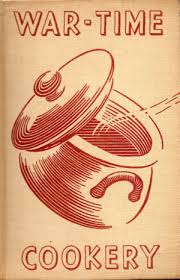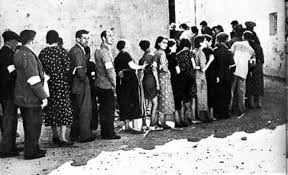I cannot remember when eating alone in a restaurant ceased to be a glamorous prospect for me. In my teens, captivated by the nebulous and incongruous promise of affluent bohemia, I pictured myself as a mature woman with the means to dine out alone just because. In my mind I’d be wearing smart unfussy clothes, good shoes, a silver cigarette case and a slim hardcover classic in my handbag. The restaurant would be high ceilinged and old fashioned: a veneer of wood polish on its mahogany chairs and tables covered in starched table clothes. I wanted to have a favourite cocktail and to unfailingly drink it as an aperitif. I wanted the maître d to know my full name but always address me as “Madame”. I wanted to take off a pair of gloves and smooth them on the table exuding a mysterious and elusive allure to other diners. I wanted to take notes on a little notebook resting by the side of my plate. In sum, I wanted to be a character in an Agatha Christie novel. More exactly, I wanted to be the heiress who becomes the main suspect of a heinous murder to the reader, but is quickly exonerated by Poirot over tea served in china cups because he can see past her faux cynicism and polished manners to finally vindicate her good heart and decency in front of her relatives in his closing revelatory soiree.
In truth, my grand uncle –an intellectual and writer who managed to miraculously live off his wits in the Post Civil War years and went on to publish numerous books on art, history, and literature– was probably the closest source of my misguided view of solitary dining. My grandmother, speaking in hushed reverential tones, used to regale me with stories of his fondness for dinners for one in fine restaurants. A gifted polymath with wise and kindly eyes magnified by thick tortoise shell glasses, and an imperious disregard for uninformed or unrefined opinions, his pleasure in food was only second to his love of books.
He would come to my parents for dinner on Sundays and bring me a book and a bag of sweets: a bilingual copy of the Little Prince and a bag of bonbons would simultaneously land on my lap. He would ask a question or two to check that I was “growing in sharpness”, make a comment about my button nose not being able to take any glasses and leave me to enjoy my book and my sweets. They don’t make elderly relatives like him anymore. One day he left the house slamming the door in anger after a political argument with my father. Both men were hot headed and passionate debaters, convinced of the righteousness of their views and the scandalous disregard for logic of their opponent’s. I suppose my father should have deferred to him on account of his age, but he didn’t and my grand uncle exited our lives with a clatter that belied the gentleness of his dealings with me. A few weeks later, my parents set out to find him in one of the cafés he frequented when he was looking to listen to his intellectual superiors, spar with his peers or inspire his disciples. He was not there and nobody could direct them to his house. He lived in a boarding house and was very private about his arrangement and address. His fine collection of books was scattered between his two nephews’ houses. It must have pained him to part with the leather bound books bearing a delicately designed ex libris seal that he had left on my parents’ shelves but he was proud and quite capable of holding a grudge in the age old Iberian tradition. We never saw him again.
From then on, my granny filled in the gaps that his growing acquaintance would have inevitably covered. She spoke highly of his mind of course but, being more sensual than intellectual and far from parsimonious when it came to food herself, she preferred to tell me of his exacting palate and great appetite and of his generosity to the waiters in the Hotel Nacional, his favourite dining spot, whom he would tip recklessly, disregarding the penny pinching antics required to keep body and soul together in Post War Madrid. My disinterest on accruing or maintaining wealth may very well stem from the same family line. I imagined him having outmoded starters like preserves in aspic or bouillabaisse served in round china bowls with a curlicued lid. He had a sweet tooth, my granny said, and he liked old-fashioned Spanish confectionaries, a dinner was not finished without a flan or some other traditional pudding. I imagined him drinking sherry and port, and having an informed but narrow taste for wines, with a weakness for the tart Albariño he had enjoyed as a teacher in Lugo. She painted him sitting upright, bearing his Patrician profile as he mulled his ideas for an article or book in the vast and half empty dining room of the Hotel Nacional.
Like most intellectuals lacking in guile, in my grandmother’s accounts he came across as a brilliant eccentric, skirting the edges of madness perhaps, but madness built around a blatant and foolhardy disregard for the material rather than the more vehement troubled kind. He believed, she told me once, that rationing, which lasted for a long time after the War was over, should be proportional to the subjective Epicurean requirements of the individual rather than his or her objective needs. The same man who held such irrational ideas about food distribution was fluent in Italian, French, German and English, translated from Latin and Classical Greek, was well versed in Baroque Spanish Art and vividly wrote about Murillo, published a definitive account of the loss of the remnants of the Spanish empire in 1898 and countless books of literary and historical exegesis. He was first one of Ortega y Gasset’s favoured disciples and, according to a reliable account, the inspiration for the character of the impoverished intellectual Martín Marco in The Beehive by Camilo José Cela, winner of the Nobel Prize for Literature, with whom he had more than a passing acquaintance. He never reached their levels of fame or comfort: unlike Ortega, he came of age too close to the turbulence of the War and he was incapable of the self-serving intrigue that sealed Cela’s prosperity. Yet he believed that his needs as a gourmet ought to be better served by rationing than those of struggling families. It just goes to show that sometimes the stomach is a stronger organ than the head, even a head as fine as his.
It was the picture of this sophisticated terrifically gifted yet earnest man sitting alone in an airy and lofty public dining room that sustained my naïve views of solitary eating as something beautiful and almost heroic. It now strikes me as an emblem of a lost and vanished world: a world of doggedly accrued knowledge and philosophies painfully carved against the tawdry realities of a depleted and demoralised country, a world in which my grand uncle carries all the tatters of decency and honesty and truth in his pocket.







